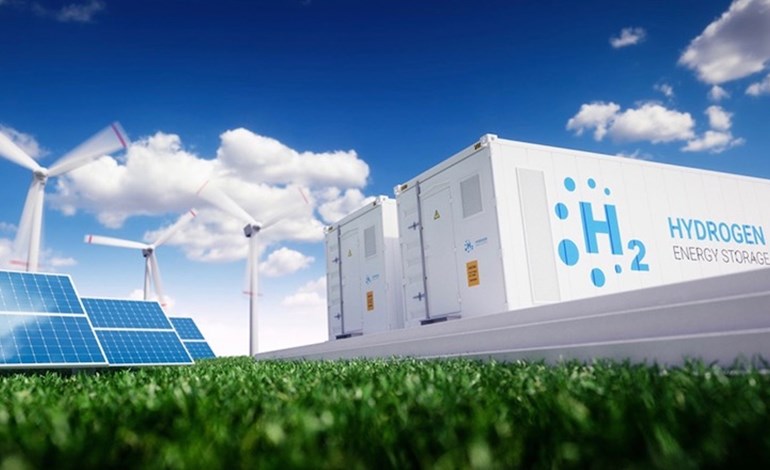Hydrogen produced with renewable electricity could compete on costs with fossil fuel alternatives by 2030, according to a new report from the International Renewable Energy Agency (IRENA).
Irena said in the ‘Green Hydrogen Cost Reduction: Scaling up Electrolysers to Meet the 1.5⁰C Climate Goal’ report that a combination of falling costs for solar and wind power, improved performance as well as economies of scale for electrolysers could make it possible.
The report looks at drivers for innovation and presents strategies that governments can peruse to reduce the cost of electrolysers by 40% in the short term and by up to 80% in the long term, IRENA said.
It said that currently green hydrogen is two to three times more expensive than blue hydrogen, produced from fossil fuels in combination with carbon capture and storage (CCS).
Irena said the production cost for green hydrogen is determined by the renewable electricity price, the investment cost of the electrolyser and its operating hours.
But, while low-cost electricity is a necessary condition for competitive green hydrogen, investment costs for electrolysis facilities must fall significantly too, Irena added.
The report said that standardisation and mass-manufacturing of the electrolyser stacks, efficiency in operation as well as the optimisation of material procurement and supply chains will be equally important to bring down costs.
In the report’s best-case scenario, using low-cost renewable electricity at $20 a megawatt-hour in large, cost-competitive electrolyser facilities could produce green hydrogen at a competitive cost with blue hydrogen already today.
If rapid scale-up and aggressive electrolysers deployment take place in the next decade, green hydrogen could then start competing on costs with blue hydrogen by 2030 in many countries, making it cheaper than other low-carbon alternatives before 2040.
IRENA director-general Francesco La Camera said: “Renewable hydrogen can be a game-changer in global efforts to decarbonise our economies.
“Levelling the playing field to close the cost gap between fossil fuels and green hydrogen is necessary.
“Cost-competitive green hydrogen can help us build a resilient energy system that thrives on modern technologies and embraces innovative solutions fit for the 21st century.”

